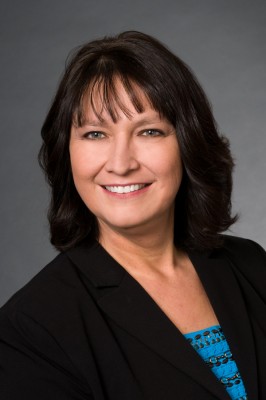Denise Juneau, Montana’s Superintendent of Public Instruction, took the stage at the Democratic National Convention Wednesday to speak highly of President Obama’s views on education – even though she doesn’t always agree with him. Juneau, the first Native American woman to win a statewide election, also spent some of her speech talking about other ways Obama has helped Native Americans.
The Hechinger Report caught up with Juneau to find out more about what’s going on in Montana and what she liked and didn’t like about Obama’s first four years.
Q: Under No Child Left Behind, all states must have 100 percent of students proficient on state exams by 2014. The Obama Administration has been granting waivers to states to free them from penalties for not hitting this mark In return, states had to promise certain reforms. Montana didn’t apply for a waiver. Why is that?
A: We actually took a look at our data, even though the bar [of students that must be proficient on state exams] went up this year, we had more students and more schools jump over that bar. So right now we have great education outcomes in our state. We’re fine under the structure of No Child Left Behind. We certainly could use some changes. We’re waiting for Congress to act, which hopefully will happen shortly after the election. For now, we’ll choose the option of staying under that system.
One thing, it’s too much money for us. We’re doing a lot of state initiatives to improve our educational system, primarily around dropout rates. We have revised our state accreditation standards. We want to do it in a way that fits our state. As long as I’m superintendent, we will fight back as hard as we can against tying teacher evaluations to student test scores. And as long as that’s a piece of the policy or money that comes out of the Department of Education, we probably will not participate. That was part of the waiver. We were meeting the requirements. We adopted Common Core. We’re revising and creating a teacher evaluation framework. We’re addressing our low performing school issues. But it has that piece that we can’t buy into yet.
That’s such a central piece of Obama’s teacher effectiveness plans. Does that make it harder for you to support him?
We can disagree on policy — but the value of education, there’s the understanding there that it leads to economic growth. He has made investments in higher education. He understands the need for students to have aspirations and to reach those goals. We can, as a state, disagree with a lot of federal policies that are coming out or pieces of them but knowing that underneath it all, if there’s some flexibility that’s provided in the future around that certain issue, we’ll certainly be a player. Right now, I like his focus on struggling schools. I like his idea of raising the profession and having quality teachers. All of those things, I think underneath it all, we agree on. It’s just how it is carried out. The alternative, of course, would be far worse than what we struggle with now.
What has President Obama done for Native American education specifically?
He actually has an executive order on Indian education [signed in December 2011], which has great intentions in it. The idea of bringing agencies together at the top levels, so bringing the Department of Interior who has a bureau of Indian education schools serving Indian students as well as the Department of Education, labor, policy, bringing all those agencies together to start talking about how to address that structural, the federal responsibility to American Indians from their treaty rights from a long time ago. There is this federal obligation to Indians and part of that is in education. So his executive order that he signed is good. I’m excited about that. He’s appointed a senior policy person to carry out the executive order and we’ll see how that works.




